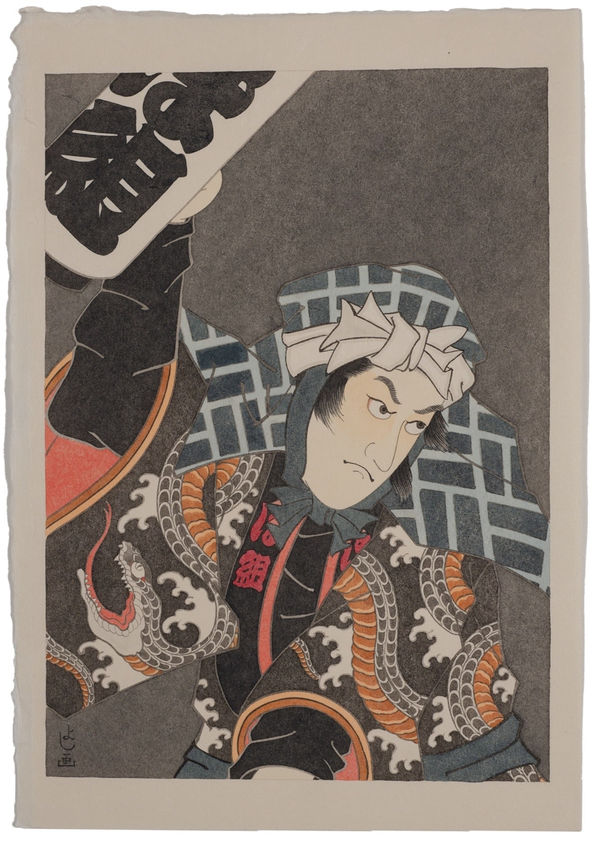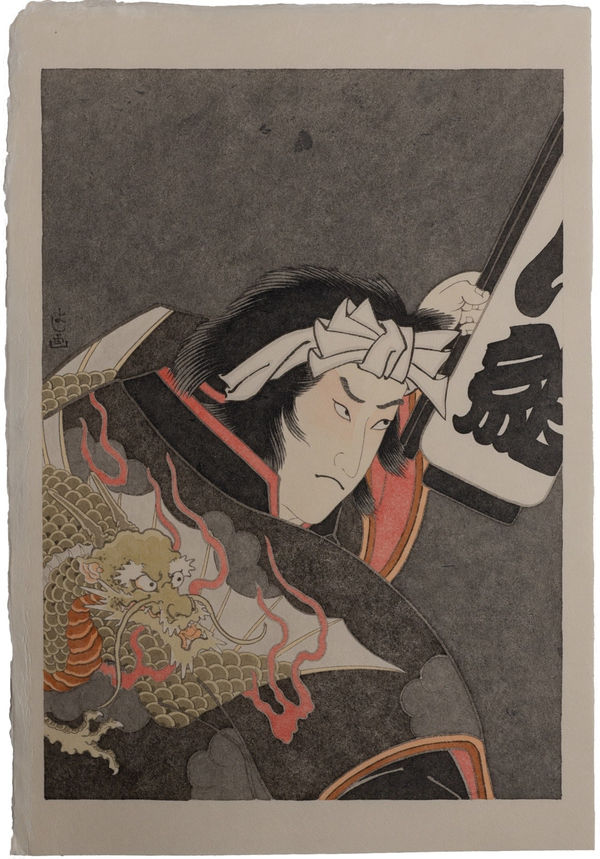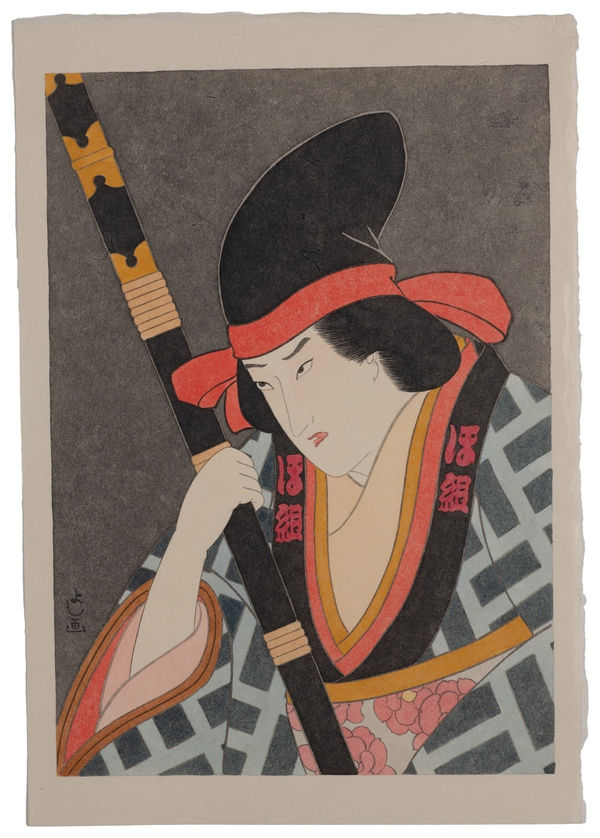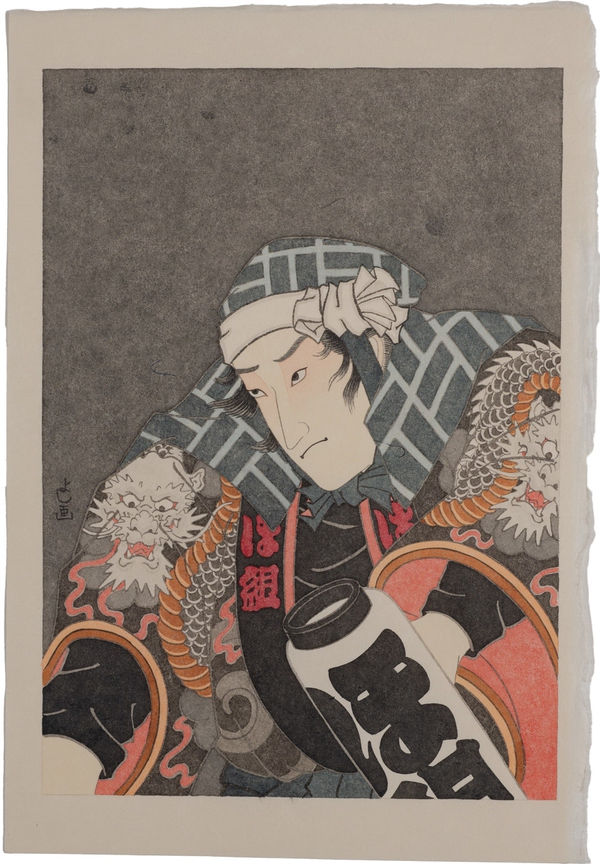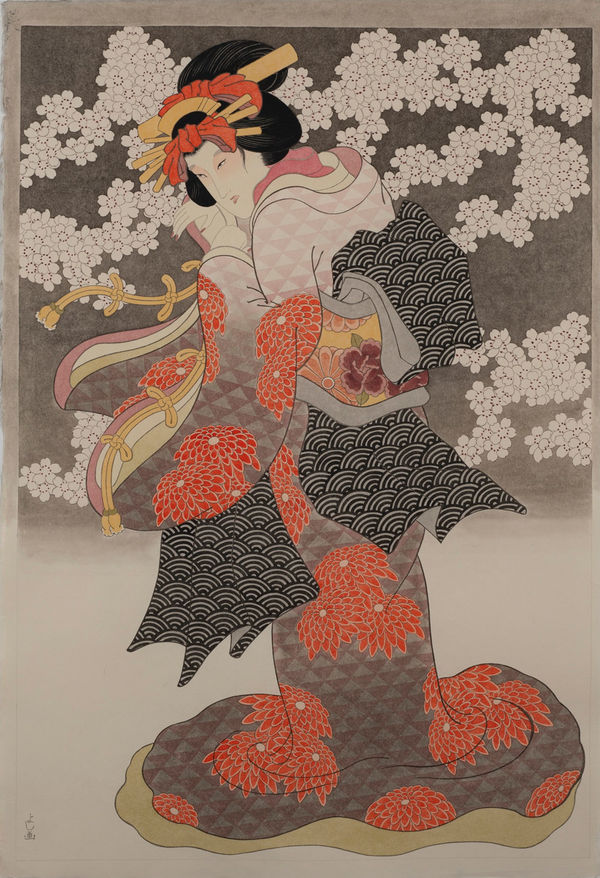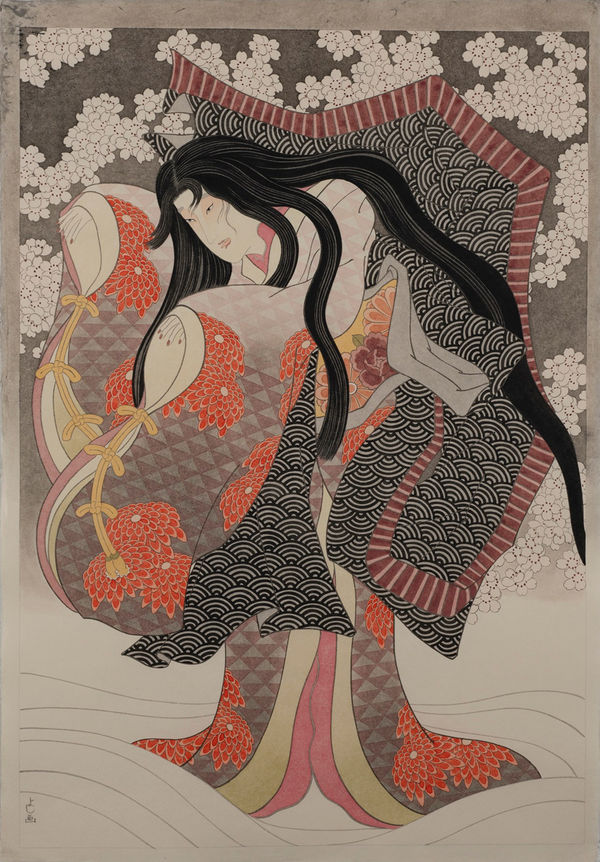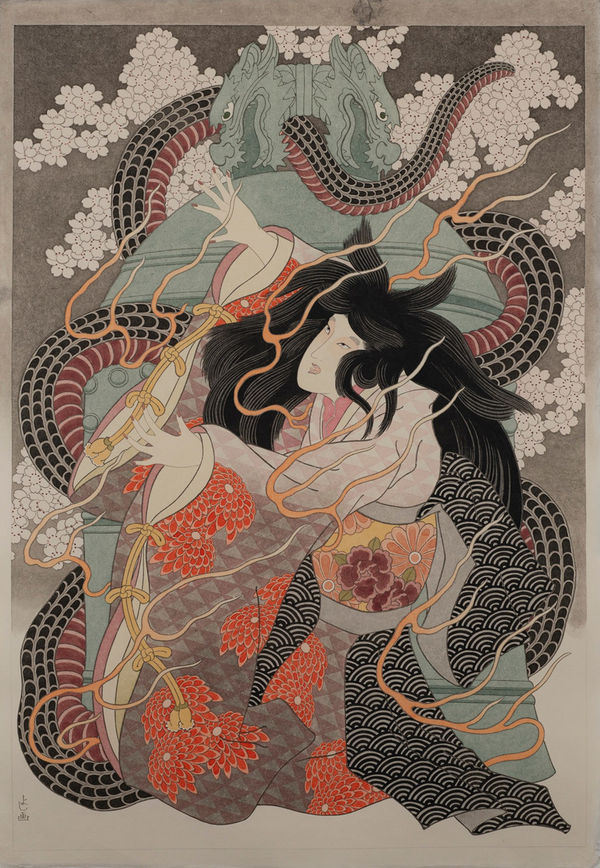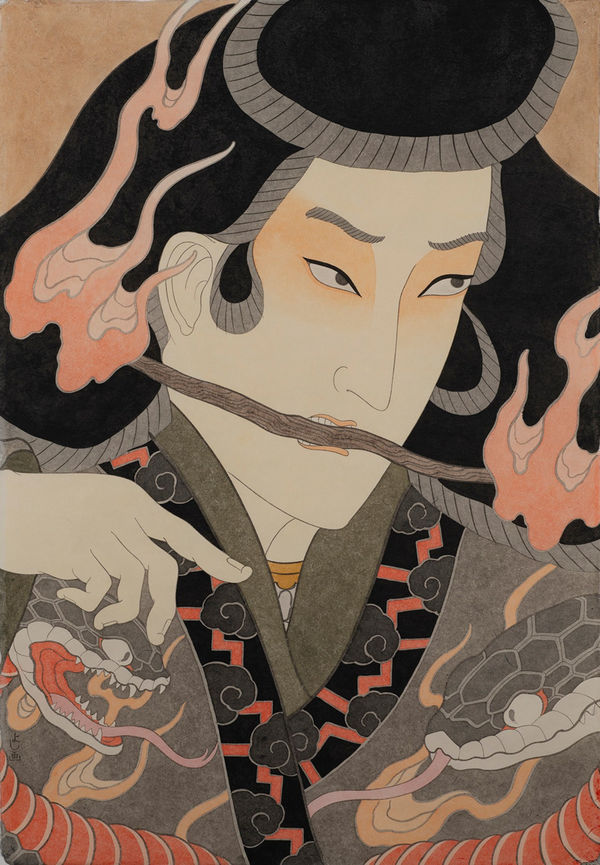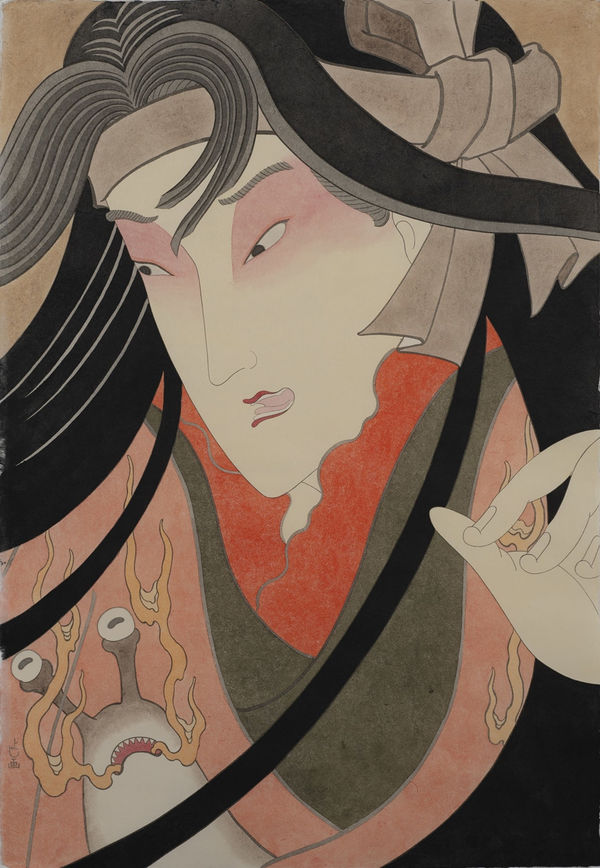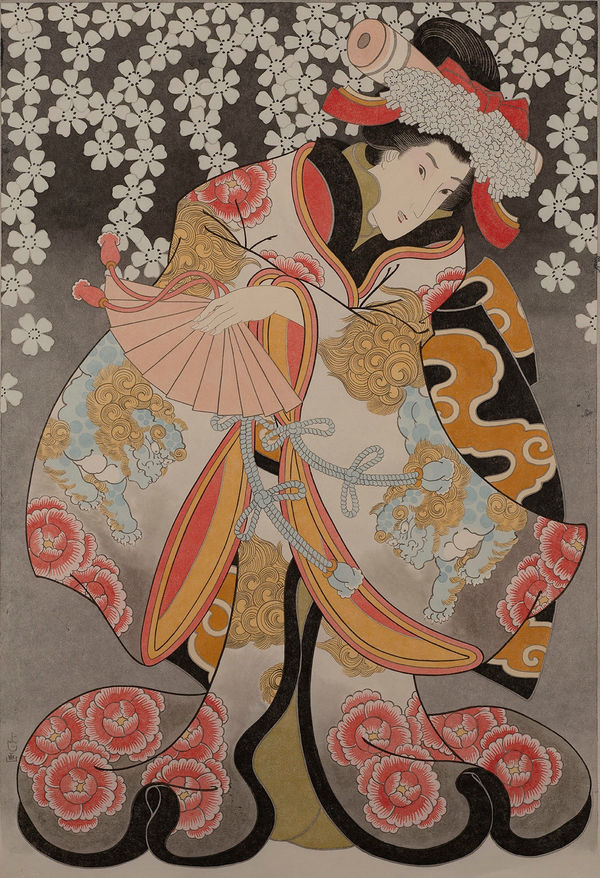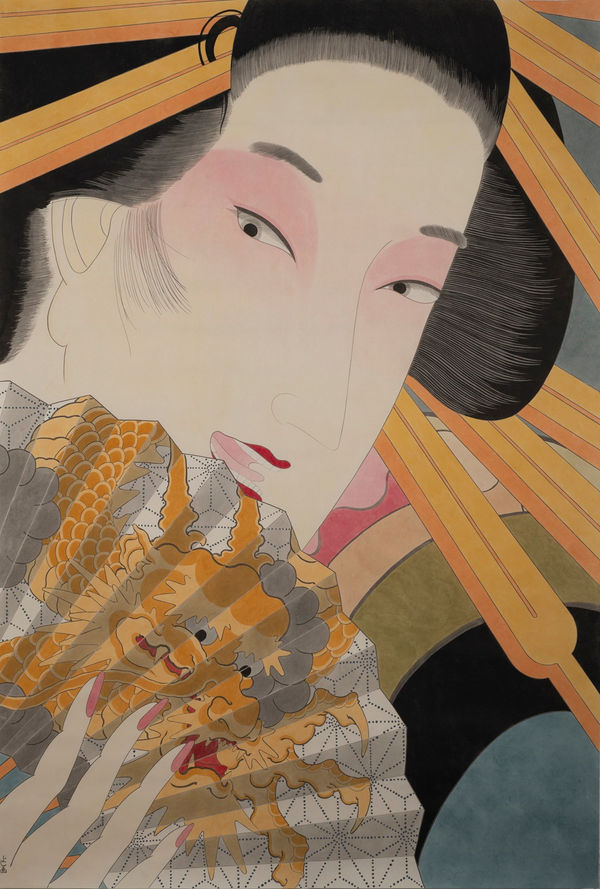-
-
At the heart of his work we discover opposing forces that exist in imagined worlds—forces which have transcended mythology and now leap off the page into our world.
-
Ralph Hobbs
July, 2024
Heroes and villains. The paradox of good versus evil is the quintessential trait of the myth story—polarising yet essential to our condition. Creed, race, time, and place become subordinate to the character traits of these great mythological protagonists and antagonists. Every culture and religion has had its players on either side of the ledger—they bring allegorical stories to life with evangelical zeal, reflecting the cyclical nature of how humanity finds new ways to trip itself up.
Yoshio Honjo straddles different cultural paradigms. His imagery is pictorially edgy—a career in tattooing studios has rendered him a master of this most permanent of art forms. He exists as a thoroughly urban artist—cool to a fault. This persona belies his deeply passionate sensibility for the traditions and stories of his Japanese homeland. These mythologies, etched into the psyche of the cultural heritage of Japan, are far more wide-reaching than the generic Japonisme that has spread around the world since the country opened up to Western trade in the 1850s.
The Serpent, the Courtesan and other Japanese Fables is a watershed moment in Honjo's exhibiting career. The sheer physical scale of his work imbues a power that belies the delicate nature of the medium. Hand-drawn linework is embellished with coloured pigments, laid down on the most unforgiving of hand-made washi paper.
Honjo brings a vital fluidity to the painted form. Through his hand we witness an ever-present contemporisation—albeit with many of traditional Japanese art making methodologies intact. The thousand-year-old Dojoji—a story of rejected desire ending in furious retribution—is one of Honjo’s investigations. The simpler and direct pop sensibility of “YŪJO” echoes the advertising awnings of the modern Japanese cities. “HIKESHI”—the suite of nine firefighters, working class heroes of an old Japan (where most buildings were made of wood)—are honoured. The artist wryly notes the heritage of tattooing belonged to those who tackled the flames; the same tattoos now hijacked by less savoury elements of Japanese society.
Figures and serpents tangle—free-flowing as if wrapping around the body—a subtle nod to his other vocation. Patterns morph into literal forms, creating an ethereal interplay. The acknowledgement of the natural world, fundamental to the Japanese psyche, is never far away from the composition. At the heart of his work we discover opposing forces that exist in imagined worlds—forces which have transcended mythology and now leap off the page into our world. -
Works
-
 Yoshio HonjoHIKESHI ONIMOYŌ, 2024Kozo Paper Suihi-Enogu Sumi-Ink49 x 33.5 cmSold
Yoshio HonjoHIKESHI ONIMOYŌ, 2024Kozo Paper Suihi-Enogu Sumi-Ink49 x 33.5 cmSold -
 Yoshio HonjoJIGOKUDAYŪ, 2024Kumohadamashi Suihi-Enogu Sumi-ink182 x 121cmSold
Yoshio HonjoJIGOKUDAYŪ, 2024Kumohadamashi Suihi-Enogu Sumi-ink182 x 121cmSold -

-
 Yoshio HonjoHIKESHI HIRYUMOYŌ, 2024Kozo Paper Suihi-Enogu Sumi-Ink49 x 33.5 cmSold
Yoshio HonjoHIKESHI HIRYUMOYŌ, 2024Kozo Paper Suihi-Enogu Sumi-Ink49 x 33.5 cmSold -
 Yoshio HonjoHIKESHI KARAJISHIMOYŌ, 2024Kozo Paper Suihi-Enogu Sumi-ink49 x 33.5 cm paper sizeSold
Yoshio HonjoHIKESHI KARAJISHIMOYŌ, 2024Kozo Paper Suihi-Enogu Sumi-ink49 x 33.5 cm paper sizeSold -
 Yoshio HonjoHIKESHI ONNA 2, 2024Kozo Paper Suihi-Enogu Sumi-Ink49 x 33.5 cmSold
Yoshio HonjoHIKESHI ONNA 2, 2024Kozo Paper Suihi-Enogu Sumi-Ink49 x 33.5 cmSold -
 Yoshio HonjoHIKESHI ONNA 1, 2024Kozo Paper Suihi-Enogu Sumi-Ink49 x 33.5 cmSold
Yoshio HonjoHIKESHI ONNA 1, 2024Kozo Paper Suihi-Enogu Sumi-Ink49 x 33.5 cmSold -
 Yoshio HonjoHIKESHI RYOKURYUMOYŌ, 2024Kozo Paper Suihi-Enogu Sumi-Ink49 x 33.5 cmSold
Yoshio HonjoHIKESHI RYOKURYUMOYŌ, 2024Kozo Paper Suihi-Enogu Sumi-Ink49 x 33.5 cmSold -
 Yoshio HonjoHIKESHI SYOUMENRYUMOYŌ, 2024Kozo Paper Suihi-Enogu Sumi-Ink49 x 33.5 cmSold
Yoshio HonjoHIKESHI SYOUMENRYUMOYŌ, 2024Kozo Paper Suihi-Enogu Sumi-Ink49 x 33.5 cmSold -
 Yoshio HonjoJIRAIYA, 2024Kozo Paper Suihi-Enogu Sumi-Ink96 x 66cmSold
Yoshio HonjoJIRAIYA, 2024Kozo Paper Suihi-Enogu Sumi-Ink96 x 66cmSold -
 Yoshio HonjoKIYOHIME 1, 2024Kozo Paper Suihi-Enogu Sumi-Ink96 x 66cmSold
Yoshio HonjoKIYOHIME 1, 2024Kozo Paper Suihi-Enogu Sumi-Ink96 x 66cmSold -
 Yoshio HonjoKIYOHIME 2, 2024Kozo Paper Suihi-Enogu Sumi-Ink96 x 66cmSold
Yoshio HonjoKIYOHIME 2, 2024Kozo Paper Suihi-Enogu Sumi-Ink96 x 66cmSold -
 Yoshio HonjoKIYOHIME 3, 2024Kozo Paper Suihi-Enogu Sumi-Ink96 x 66cmSold
Yoshio HonjoKIYOHIME 3, 2024Kozo Paper Suihi-Enogu Sumi-Ink96 x 66cmSold -
 Yoshio HonjoOROCHIMARU, 2024Kozo Paper Suihi-Enogu Sumi-Ink96 x 66cmSold
Yoshio HonjoOROCHIMARU, 2024Kozo Paper Suihi-Enogu Sumi-Ink96 x 66cmSold -

-
 Yoshio HonjoSHIZUKAGOZEN TO YOSHITSUNE, 2024Kozo Paper Suihi-Enogu Sumi-Ink, Kinpaku (gold leaf)96 x 66cmSold
Yoshio HonjoSHIZUKAGOZEN TO YOSHITSUNE, 2024Kozo Paper Suihi-Enogu Sumi-Ink, Kinpaku (gold leaf)96 x 66cmSold
120 x 87cm Framed -

-
 Yoshio HonjoYukihime, 2024Kozo Paper Suihi-Enogu Sumi-Ink118 x 87 x 4cm framed sizeSold
Yoshio HonjoYukihime, 2024Kozo Paper Suihi-Enogu Sumi-Ink118 x 87 x 4cm framed sizeSold -
 Yoshio HonjoYŪJO 1, 2024Kumohadamashi Suihi-Enogu Sumi-ink182 x 121cmSold
Yoshio HonjoYŪJO 1, 2024Kumohadamashi Suihi-Enogu Sumi-ink182 x 121cmSold -
 Yoshio HonjoYŪJO 2, 2024Kumohadamashi Suihi-Enogu Sumi-ink182 x 121cmSold
Yoshio HonjoYŪJO 2, 2024Kumohadamashi Suihi-Enogu Sumi-ink182 x 121cmSold
-



